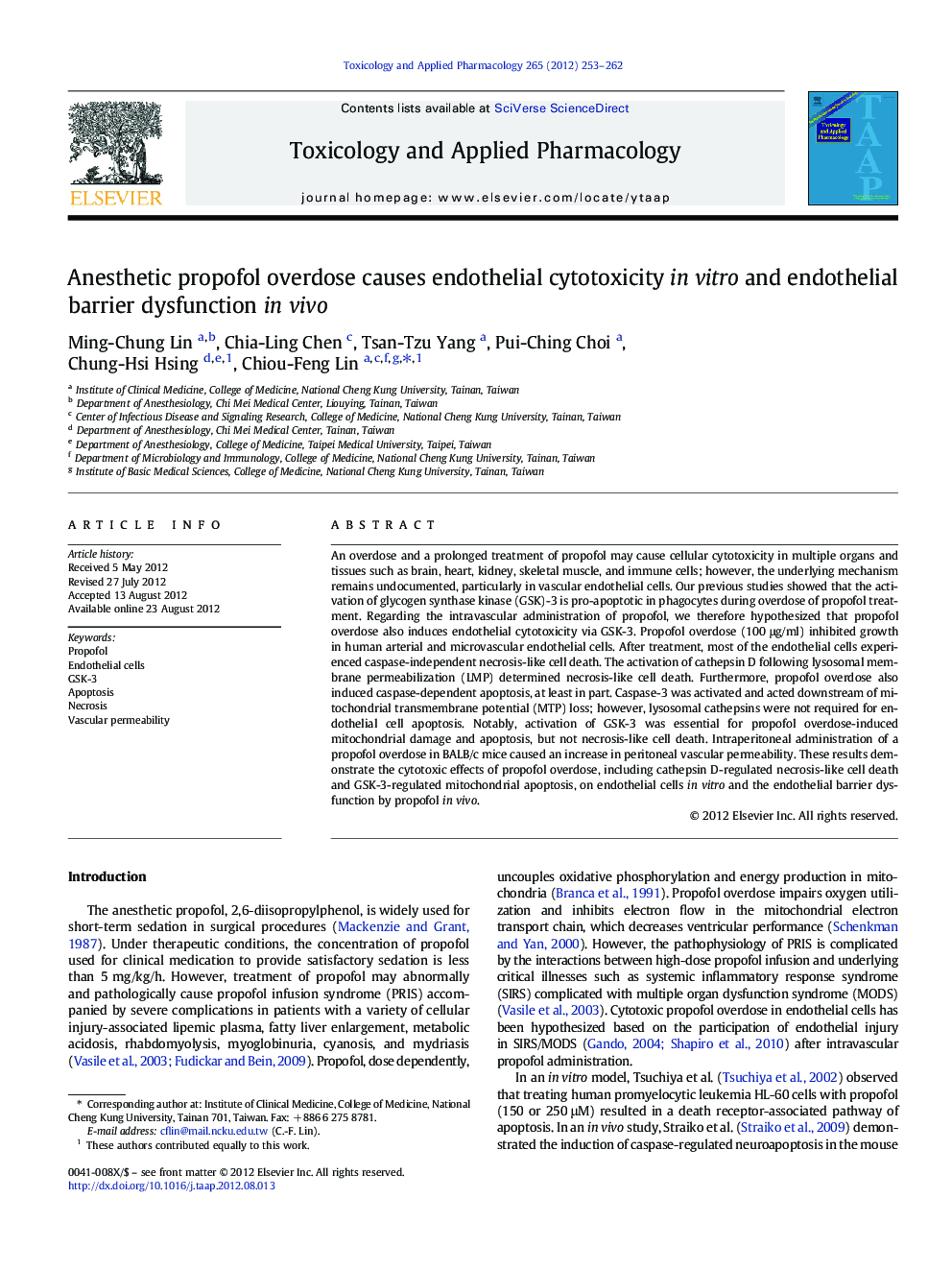| Article ID | Journal | Published Year | Pages | File Type |
|---|---|---|---|---|
| 2569373 | Toxicology and Applied Pharmacology | 2012 | 10 Pages |
An overdose and a prolonged treatment of propofol may cause cellular cytotoxicity in multiple organs and tissues such as brain, heart, kidney, skeletal muscle, and immune cells; however, the underlying mechanism remains undocumented, particularly in vascular endothelial cells. Our previous studies showed that the activation of glycogen synthase kinase (GSK)-3 is pro-apoptotic in phagocytes during overdose of propofol treatment. Regarding the intravascular administration of propofol, we therefore hypothesized that propofol overdose also induces endothelial cytotoxicity via GSK-3. Propofol overdose (100 μg/ml) inhibited growth in human arterial and microvascular endothelial cells. After treatment, most of the endothelial cells experienced caspase-independent necrosis-like cell death. The activation of cathepsin D following lysosomal membrane permeabilization (LMP) determined necrosis-like cell death. Furthermore, propofol overdose also induced caspase-dependent apoptosis, at least in part. Caspase-3 was activated and acted downstream of mitochondrial transmembrane potential (MTP) loss; however, lysosomal cathepsins were not required for endothelial cell apoptosis. Notably, activation of GSK-3 was essential for propofol overdose-induced mitochondrial damage and apoptosis, but not necrosis-like cell death. Intraperitoneal administration of a propofol overdose in BALB/c mice caused an increase in peritoneal vascular permeability. These results demonstrate the cytotoxic effects of propofol overdose, including cathepsin D-regulated necrosis-like cell death and GSK-3-regulated mitochondrial apoptosis, on endothelial cells in vitro and the endothelial barrier dysfunction by propofol in vivo.
Graphical abstractFigure optionsDownload full-size imageDownload high-quality image (53 K)Download as PowerPoint slideHighlights► Propofol overdose causes apoptosis and necrosis in endothelial cells. ► Propofol overdose triggers lysosomal dysfunction independent of autophagy. ► Glycogen synthase kinase-3 facilitates propofol overdose-induced apoptosis. ► Propofol overdose causes an increase in peritoneal vascular permeability.
